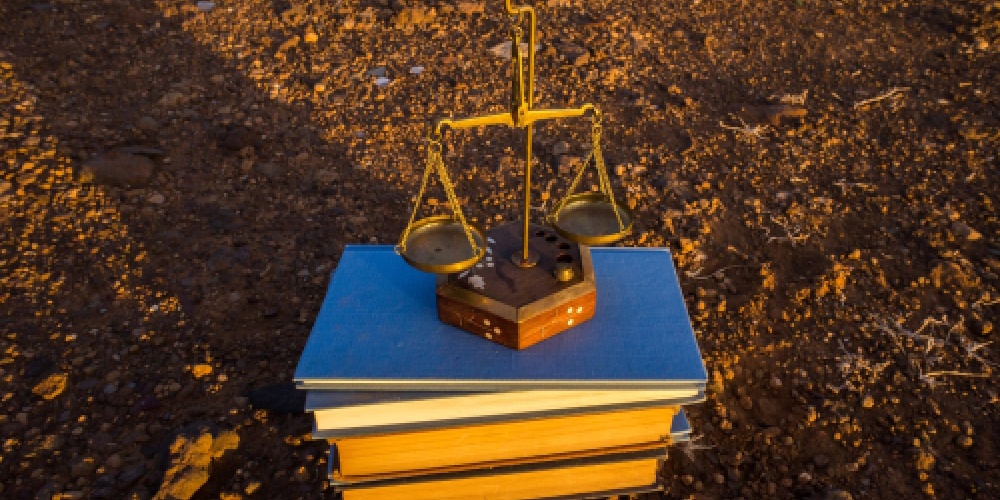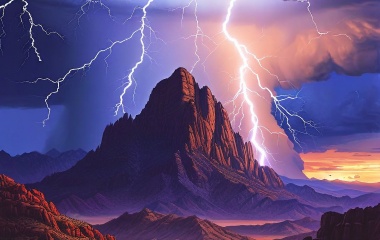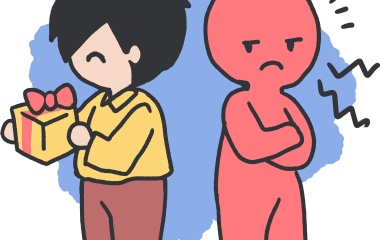
Famine, exile, dissent, descent, slavery, persecution, death and at last redemption. The Jewish people have crossed the sea – finally believing “in G-d and in Moshe His servant” (Shemot 14:31). They have “been saved from the hand of Egypt” (Shemot 3:8) but there is one more stop before they can “be brought up from that land to a good and spacious land, a land flowing with milk and honey (Shemot 3:8)[1].
“On the third month of the children of Israel's departure from Egypt, on this day they arrived in the desert of Sinai” (Shemot 19:1). It is at Sinai that the Jewish people were to become a “kingdom of priests and holy nation” (Shemot 19:5), where the great Divine revelation would soon take place in perhaps the most momentous moment in world history.
Yet immediately preceding the glory of Sinai the Torah digresses and records Yitro’s advice to Moshe regarding the appointment of judges. “Moshe’s father-in-law said to him, ‘The thing you are doing is not right…Now listen to me. I will give you counsel, and G-d be with you…you shall also seek out, from among all the people, capable individuals who fear God—trustworthy ones who spurn money” (Shemot 18:17-21).
Could this not have waited until after Sinai? Would this not be a perfect fit in parshat Mishpatim where so much of our civil law is recorded? This question is greatly strengthened if one accepts the view of many that Yitro did not actually come to see Moshe until after the revelation of Sinai (Zevachim 116a). Why go out of the way to record technical judicial procedure on the cusp of Sinai?
One must conclude that the appointment of judges is the pre-condition to receiving of the Torah. Without a strong justice system, society disintegrates, undermining the entire premise of the Torah of creating “a kingdom of priests and a holy nation”. On a most basic level the role of courts is to bring people together. By resolving disputes equitably, they allow disputants to end any animosity they had towards each other. Our Sages teach that at Sinai the Jewish people were “as one person with one heart”. It is was this unity of the people that allowed G-d to reveal Himself to man and enter into a covenant with the Jewish people taking them to the land of Israel. And when disunity reigned the people were exiled from the land.
The connection between the judicial system and the giving of the Torah runs much deeper.
“In the beginning G-d created the Heaven and the Earth”. Rashi, commenting on the very first word of the Torah, Breisheet, notes that “G-d created the world for the sake of the Torah which is called the beginning”. Commenting on last verse of the (active) creation story, Rashi quotes the teaching of our Sages that, “The whole Creation stood in a state of suspense until the sixth day — that is, the sixth day of Sivan which was destined to be the day when the Torah would be given to Israel”.
Yet G-d did not create the world alone. “Every judge who dan din emet leamito, judges a true judgment in truth, even if for only one hour, the verse ascribes to him as if he became a partner to the Holy One, Blessed be He, in the act of Creation” (Shabbat 10a). Justice is the bedrock of creation and G-d tasked the judges to ensure that creation rest on solid grounds. “Rabbi Shimon ben Gamliel said, upon three things the word stands; al din, v’al haemet, v’al hashalom, on justice, on truth and on peace” (Pirkei Avot 1:18). Justice, truth and peace are all really differing sides of the same coin. Truth is the foundation of justice and justice properly carried out leads to peace. Judges do no less than ensure the survival of the world.
Judges not only are the bedrock of creation they help bring about revelation. “Every judge who dan din emet leamito, judges a true judgment in truth, causes the Shechinah, Divine presence, to dwell in Israel” (Sanhedrin 7a). At Sinai G-d revealed Himself to the nation for the first time. But it is judges who ensure that revelation is a continuous process that happens each and every day.
Yitro’s advice to Moshe may have happened after Sinai. But such matters little. The Torah choose to surround the events of Sinai with the notion of justice. The importance of selecting the right people and setting up a tiered court system takes us to Sinai, and it is parshat Mishpatim with its focus on practical aspects of justice that follows.
There is another aspect of justice that makes it the pre-condition to receiving the Torah. What exactly does it mean to dan din emet leamito, judge truth to truth? Truth is truth – can there be truth that is not truth? The simple and profound answer of our tradition is yes. Rav Yehoshua Falk in his commentary to the Tur (Choshen Misphat #1) explains that emet leamito means that “one judges according to the place and time”. Torah is eternal and never changing. But halacha, the application of Torah to actual life, is constantly changing. That is because halacha is what emerges when one takes the never changing principles of Torah and applies them to ever changing realities of life. A ruling that may have worked in pre-modern times may cause much harm today[2]. And a ruling applicable in Israel may be a disaster if applied in North America. It is for this reason that we have a mara d’atra, one who issues ruling in this place.
Our Torah must be a Torat Chaim, a living Torah relevant for all times and places. And it is our judges – those suggested by Yitro - who are dan din emet leamito who are tasked with ensuring the rulings are true and applicable for all times and places. Is it any wonder that the Aseret HaDibrot are recorded in Parshat Yitro. May we be merit the appointment of such judges.
[1] It is striking to note that both in G-d’s covenant with Avraham (see Breisheet 17:13-16) and when initially revealing himself to Moshe at the burning bush (see Shemot 3: 7-10) there is no mention of Sinai or Torah. G-d promises them that he will take them from Egypt and bring them to the Land of Israel. Sinai seems to be where the Jewish people get instructions for how to set up a State in the Land of Israel.
[2] To cite just one example. In pre-modern times (actually until the responsa of the Binyan Tzion Hacadashot #23 in 1861) those who violated shabbat were - in keeping with an explicit Talmudic ruling – akin to idolaters and it was amongst other things forbidden to drink wine they touched. They were outcasts. Acting in a such a way today would be the height of folly and a terrible distortion of applying the halacha emet leamito.



